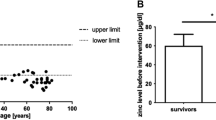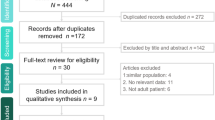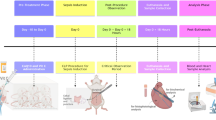Abstract
Objectives
Coronary artery bypass graft (CABG) surgery has been reported to be associated with lower postoperative plasma antioxidant and zinc levels. We hypothesized that perioperative supplementation of vitamin E and zinc might improve short-term postoperative outcomes.
Methods
In this placebo-controlled double-blind, randomized study, patients undergoing CABG performed with cardiopulmonary bypass were recruited. The intervention group received zinc and vitamin E supplementation (1200 IU vitamin E and 120 mg elemental zinc) the day before surgery, followed by postoperative daily supplementation of 30 mg zinc and 200 IU vitamin E from the 2nd day after surgery to 3 weeks. The control group received placebos. Length of stay (LOS) in the intensive care unit and hospital, sequential organ failure assessment score on 3rd day after surgery, and plasma inflammatory markers on days 3 and 21 post-surgery were evaluated.
Results
Seventy-eight patients completed the study (40 in the intervention group and 38 in the placebo group). The hospital LOS was significantly shorter (p < 0.05) in the intervention group. Postoperative changes in plasma albumin levels were not different between the two groups. The plasma zinc level was higher (p < 0.0001), but plasma C-reactive protein (p = 0.01), pentraxin 3 (p < 0.0001), interferon γ (p < 0.05), malondialdehyde (p < 0.05), and aspartate aminotransferase (p < 0.01) were lower in the intervention group compared to the placebo group.
Conclusions
Perioperative vitamin E and zinc supplementation significantly reduced hospital LOS and the inflammatory response in CABG surgery patients. In these patients, the optimal combination and dose of micronutrients need further study but could include zinc and vitamin E.
Clinical trial registry
This trial was registered at ClinicalTrials.gov website (NCT05402826).
This is a preview of subscription content, access via your institution
Access options
Subscribe to this journal
Receive 12 print issues and online access
$259.00 per year
only $21.58 per issue
Buy this article
- Purchase on Springer Link
- Instant access to full article PDF
Prices may be subject to local taxes which are calculated during checkout


Similar content being viewed by others
Data availability
The data of this study are available from the corresponding author upon reasonable request.
References
Jongman RM, Zijlstra JG, Kok WF, van Harten AE, Mariani MA, Moser J, et al. Off-pump CABG surgery reduces systemic inflammation compared with on-pump surgery but does not change systemic endothelial responses: a prospective randomized study. Shock. 2014;42:121–8. https://doi.org/10.1097/shk.0000000000000190
Murphy GJ, Angelini GD. Side effects of cardiopulmonary bypass: what is the reality? J Card Surg. 2004;19:481–8. https://doi.org/10.1111/j.0886-0440.2004.04101.x
Milei J, Forcada P, Fraga CG, Grana DR, Iannelli G, Chiariello M, et al. Relationship between oxidative stress, lipid peroxidation, and ultrastructural damage in patients with coronary artery disease undergoing cardioplegic arrest/reperfusion. Cardiovasc Res. 2007;73:710–9. https://doi.org/10.1016/j.cardiores.2006.12.007
Christen S, Finckh B, Lykkesfeldt J, Gessler P, Frese-Schaper M, Nielsen P, et al. Oxidative stress precedes peak systemic inflammatory response in pediatric patients undergoing cardiopulmonary bypass operation. Free Radic Biol Med. 2005;38:1323–32. https://doi.org/10.1016/j.freeradbiomed.2005.01.016
Pang Y, Li Y, Zhang Y, Wang H, Lang J, Han L, et al. Effects of inflammation and oxidative stress on postoperative delirium in cardiac surgery. Front Cardiovasc Med. 2022;9:1049600. https://doi.org/10.3389/fcvm.2022.1049600
Zakkar M, Guida G, Suleiman MS, Angelini GD. Cardiopulmonary bypass and oxidative stress. Oxid Med Cell Longev. 2015;2015:189863. https://doi.org/10.1155/2015/189863
Jouybar R, Kabgani H, Kamalipour H, Shahbazi S, Allahyary E, Rasouli M, et al. The perioperative effect of ascorbic acid on inflammatory response in coronary artery bypass graft surgery; a randomized controlled trial coronary artery bypass graft surgery. Int Cardiovasc Res J. 2017;6:1.
Ali- Hasan- Al- Saegh S, Mirhosseini SJ, Tahernejad M, Mahdavi P, Shahidzadeh A, Karimi-Bondarabadi AA, et al. Impact of antioxidant supplementations on cardio-renal protection in cardiac surgery: an updated and comprehensive meta-analysis and systematic review. Cardiovasc Ther. 2016;34:360–70. https://doi.org/10.1111/1755-5922.12207
Lassnigg A, Punz A, Barker R, Keznickl P, Manhart N, Roth E, et al. Influence of intravenous vitamin E supplementation in cardiac surgery on oxidative stress: a double-blinded, randomized, controlled study. Br J Anaesth. 2003;90:148–54. https://doi.org/10.1093/bja/aeg042
Axford-Gately RA, Wilson GJ. Myocardial infarct size reduction by single high dose or repeated low dose vitamin E supplementation in rabbits. Can J Cardiol. 1993;9:94–8.
Jaxa-Chamiec T, Bednarz B, Drozdowska D, Gessek J, Gniot J, Janik K, et al. Antioxidant effects of combined vitamins C and E in acute myocardial infarction. The randomized, double-blind, placebo controlled, multicenter pilot Myocardial Infarction and VITamins (MIVIT) trial. Kardiol Pol. 2005;62:344–50.
Hou HT, Xue LG, Zhou JY, Wang SF, Yang Q, He GW. Alteration of plasma trace elements magnesium, copper, zinc, iron and calcium during and after coronary artery bypass grafting surgery. J Trace Elem Med Biol. 2020;62:126612 https://doi.org/10.1016/j.jtemb.2020.126612
Shenkin A, Berger MM. Micronutrients: a low blood concentration is not equivalent to deficiency. Clin Nutr. 2022;41:2562–4. https://doi.org/10.1016/j.clnu.2022.09.015
Powell SR. The antioxidant properties of zinc. J Nutr. 2000;130:1447s–54s. https://doi.org/10.1093/jn/130.5.1447S
Karagulova G, Yue Y, Moreyra A, Boutjdir M, Korichneva I. Protective role of intracellular zinc in myocardial ischemia/reperfusion is associated with preservation of protein kinase C isoforms. J Pharmacol Exp Ther. 2007;321:517–25.
Boehme AK, Hays AN, Kicielinski KP, Arora K, Kapoor N, Lyerly MJ, et al. Systemic inflammatory response syndrome and outcomes in intracerebral hemorrhage. Neurocrit Care. 2016;25:133–40. https://doi.org/10.1007/s12028-016-0255-9
Aguilar Diaz De Leon J, Borges CR. Evaluation of oxidative stress in biological samples using the thiobarbituric acid reactive substances assay. J Vis Exp. 2020. https://doi.org/10.3791/61122
Nouri-Majalan N, Ardakani EF, Forouzannia K, Moshtaghian H. Effects of allopurinol and vitamin E on renal function in patients with cardiac coronary artery bypass grafts. Vasc Health Risk Manag. 2009;5:489.
Duncan A, Talwar D, McMillan DC, Stefanowicz F, O’Reilly DS. Quantitative data on the magnitude of the systemic inflammatory response and its effect on micronutrient status based on plasma measurements. Am J Clin Nutr. 2012;95:64–71. https://doi.org/10.3945/ajcn.111.023812
Berger MM, Soguel L, Shenkin A, Revelly JP, Pinget C, Baines M, et al. Influence of early antioxidant supplements on clinical evolution and organ function in critically ill cardiac surgery, major trauma, and subarachnoid hemorrhage patients. Crit Care. 2008;12:R101 https://doi.org/10.1186/cc6981
Santos HO, Teixeira FJ, Schoenfeld BJ. Dietary vs. pharmacological doses of zinc: a clinical review. Clin Nutr. 2020;39:1345–53. https://doi.org/10.1016/j.clnu.2019.06.024
Ai AL, Hall D, Bolling SF. Interleukin-6 and hospital length of stay after open-heart surgery. Biol Psichiatr Psichofarmakol. 2012;14:79–82.
Nouri-Majalan N, Ardakani EF, Forouzannia K, Moshtaghian H. Effects of allopurinol and vitamin E on renal function in patients with cardiac coronary artery bypass grafts. Vasc Health Risk Manag. 2009;5:489–94.
Nathens AB, Neff MJ, Jurkovich GJ, Klotz P, Farver K, Ruzinski JT, et al. Randomized, prospective trial of antioxidant supplementation in critically ill surgical patients. Ann Surg. 2002;236:814.
Dey S, Kashav R, Kohli JK, Magoon R, ItiShri, Walian A, et al. Systemic immune-inflammation index predicts poor outcome after elective off-pump CABG: a retrospective, single-center study. J Cardiothorac Vasc Anesth. 2021;35:2397–404. https://doi.org/10.1053/j.jvca.2020.09.092
Bastrup-Birk S, Skjoedt MO, Munthe-Fog L, Strom JJ, Ma YJ, Garred P. Pentraxin-3 serum levels are associated with disease severity and mortality in patients with systemic inflammatory response syndrome. PLoS One. 2013;8:e73119 https://doi.org/10.1371/journal.pone.0073119
Holubcova Z, Kunes P, Mandak J, Kolackova M, Andrys C, Krejsek J, et al. Could pentraxin 3 be a new diagnostic marker for excessive inflammatory response in cardiac surgery? Thorac Cardiovasc Surg. 2014;62:670–6. https://doi.org/10.1055/s-0034-1384668
Gunes T, Bozok S, Kestelli M, Yurekli I, Ilhan G, Ozpak B, et al. α-tocopherol and ascorbic acid in early postoperative period of cardiopulmonary bypass. J Cardiovasc Med (Hagerstown). 2012;13:691–9. https://doi.org/10.2459/JCM.0b013e328356a2dc
Mertens K, Lowes D, Webster N, Talib J, Hall L, Davies MJ, et al. Low zinc and selenium concentrations in sepsis are associated with oxidative damage and inflammation. BJA: Br J Anaesth. 2015;114(6):990–9.
Schoenborn JR, Wilson CB. Regulation of interferon-gamma during innate and adaptive immune responses. Adv Immunol. 2007;96:41–101. https://doi.org/10.1016/s0065-2776(07)96002-2
Franke A, Lante W, Fackeldey V, Becker HP, Thode C, Kuhlmann WD, et al. Proinflammatory and antiinflammatory cytokines after cardiac operation: different cellular sources at different times. Ann Thorac Surg. 2002;74:363–70. https://doi.org/10.1016/s0003-4975(02)03658-5
Franke A, Lante W, Markewitz A, Weinhold C. In vitro restoration of post-operatively decreased IFN-gamma levels after cardiac surgery and its effect on pro- and anti-inflammatory mediators. J Surg Res. 2006;136:266–72. https://doi.org/10.1016/j.jss.2006.06.036
Busch CJ, Binder CJ. Malondialdehyde epitopes as mediators of sterile inflammation. Biochim Biophys Acta Mol Cell Biol Lipids. 2017;1862:398–406. https://doi.org/10.1016/j.bbalip.2016.06.016
Canbaz S, Duran E, Ege T, Sunar H, Cikirikcioglu M, Acipayam M. The effects of intracoronary administration of vitamin E on myocardial ischemia-reperfusion injury during coronary artery surgery. Thorac Cardiovasc Surg. 2003;51:57–61. https://doi.org/10.1055/s-2003-38983
van Boxtel AG, Bramer S, Soliman Hamad MA, van Straten AH. Perioperative serum aspartate aminotransferase level as a predictor of survival after coronary artery bypass grafting. Ann Thorac Surg. 2012;94:1492–8. https://doi.org/10.1016/j.athoracsur.2012.05.098
Gultekin Y, Bolat A, Hatice K, Tekeli Kunt A. Does aspartate aminotransferase to alanine aminotransferase ratio predict acute kidney injury after cardiac surgery? Heart Surg Forum. 2021;24:E506–e11. https://doi.org/10.1532/hsf.3849
Sato K, Gosho M, Yamamoto T, Kobayashi Y, Ishii N, Ohashi T, et al. Vitamin E has a beneficial effect on nonalcoholic fatty liver disease: a meta-analysis of randomized controlled trials. Nutrition. 2015;31:923–30. https://doi.org/10.1016/j.nut.2014.11.018
Acknowledgements
The authors would like to thank the staff of the Cardiac Intensive Care Unit of Shafa Hospital.
Funding
This work was supported by a research grant from Shahid Beheshti University of Medical Sciences.
Author information
Authors and Affiliations
Contributions
The research was conceived by JN, designed by JN, EM, and RN; conducted by EM and RN, and MS; data were analyzed by JN; the paper was written by EM and JN. All authors approved the final version of the manuscript.
Corresponding author
Ethics declarations
Competing interests
The authors declare no competing interests.
Additional information
Publisher’s note Springer Nature remains neutral with regard to jurisdictional claims in published maps and institutional affiliations.
Rights and permissions
Springer Nature or its licensor (e.g. a society or other partner) holds exclusive rights to this article under a publishing agreement with the author(s) or other rightsholder(s); author self-archiving of the accepted manuscript version of this article is solely governed by the terms of such publishing agreement and applicable law.
About this article
Cite this article
Makiabadi, E., Nakhaeizadeh, R., Soleimani, M. et al. Effects of perioperative vitamin E and zinc co-supplementation on systemic inflammation and length of stay following coronary artery bypass graft surgery: a randomized controlled trial. Eur J Clin Nutr 78, 120–127 (2024). https://doi.org/10.1038/s41430-023-01356-x
Received:
Revised:
Accepted:
Published:
Issue Date:
DOI: https://doi.org/10.1038/s41430-023-01356-x



